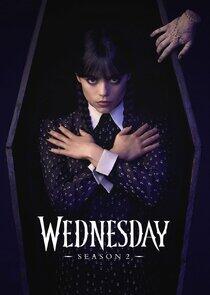The Price of Freedom

Historian David Olusoga continues his examination of Britain's forgotten slave owners. In this episode, David explores how in 1834 the government arrived at the extraordinary decision to compensate the slave-owners with the equivalent of £17 billion in today's money. Tracing the bitter propaganda war waged between the pro-slavery lobby and the abolitionists, he reveals that paying off the slave owners for the loss of their human property was, ultimately, the only way to bring the system to an end.
Meticulously kept records held at the National Archives detail the names of the 46,000 slave owners from across the British Empire who had a slice of this vast handout. Combined with new research, shared exclusively with the BBC by University College London, it reveals more about Britain's slave owners than we've ever known before.
Of the 46,000 names in the 1834 compensation records, 3,000 lived in Britain, yet they owned half of the slaves across the empire and pocketed half of the compensation money. These include members of the clergy and of the House of Lords. The records also show that at the point of abolition, more than 40 percent of all the slave owners were women.
David goes on to investigate what happened to the wealth generated by the slave system and compensation pay out. He reveals aspects of Britain's spectacular industrialization in the 19th century, the consolidation of the City of London as a world center of finance, and a number of the country's most well-known institutions that all have links to slave-derived wealth.
Ultimately, David discovers that the country's debt to slavery is far greater than previously thought, shaping everything from the nation's property landscape to its ideas about race. It's a legacy that can still be felt today.
Trailer
Recently Updated Shows

48 Hours
48 Hours is a CBS news magazine that investigates intriguing crime and justice cases that touch on all aspects of the human experience. Over its long run, the show has helped exonerate wrongly convicted people, driven the reopening -- and resolution -- of cold cases, and changed numerous lives. CBS News correspondents offer an in-depth look into each story, with the emphasis on solving the mystery at its heart. The program and its team have earned critical acclaim, including 20 Emmys and three Peabody Awards.

Invasion
Earth is visited by an alien species that threatens humanity's existence. Events unfold in real time through the eyes of five ordinary people across the globe as they struggle to make sense of the chaos unraveling around them.

Wednesday
Smart, sarcastic and a little dead inside, Wednesday Addams investigates a murder spree while making new friends — and foes — at Nevermore Academy.

Alien: Earth
When the mysterious deep space research vessel USCSS Maginot crash-lands on Earth, Wendy and a ragtag group of tactical soldiers make a fateful discovery that puts them face-to-face with the planet's greatest threat.

Peacemaker
This James Gunn-created series continues the saga of Peacemaker, a vainglorious superhero/supervillain who believes in peace at any cost — no matter how many people he has to kill. After a miraculous recovery from his duel with Bloodsport, Peacemaker soon discovers that his freedom comes at a price.